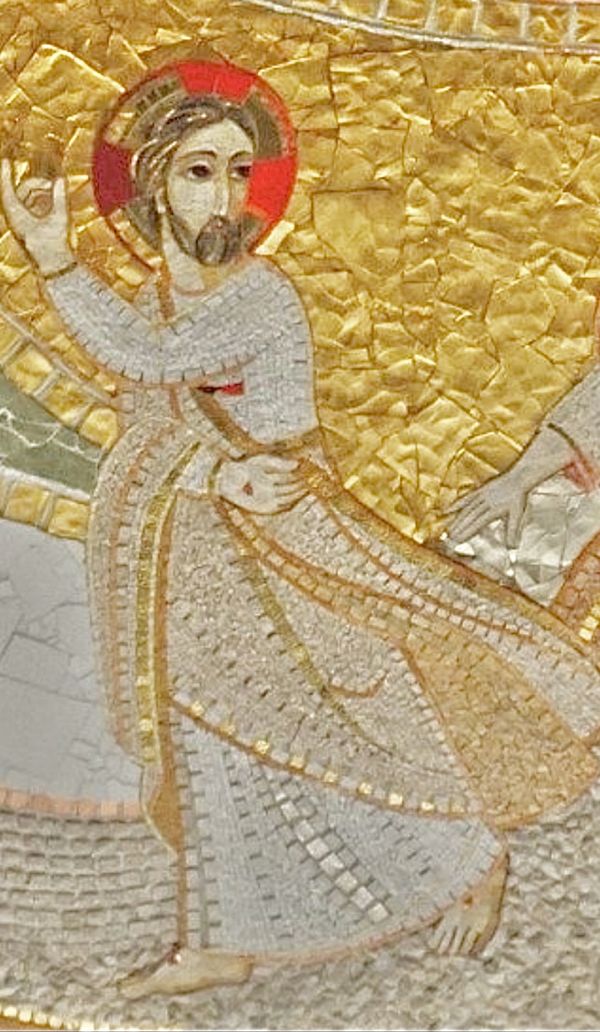Fossilized in reminiscences, or Announced by Brethren
(Jn 20:11-18)
Mk tells of a young man dressed in white, Mt of an angel, Lk of two men dressed in white, Jn of two angels.
The stories on the annunciation and on the heralds of the Resurrection do not fit together according to our way of telling.
To avoid a limited view on the victory of Life, it’s appropriate to understand that we are not celebrating the week of the apparitions of the Risen One, but of his Manifestations [Greek text].
He doesn’t appear only to some - to others He doesn’t: manifests itself. We experience Him.
And there is a new Creation: now we don’t recognize Jesus when we see, but when we ‘listen’ Him (v.16).
The Lord makes himself ‘seen’ not in the moment of the vision, but in the time of the Word, of the personal Appeal that «turns» the gaze from the irrelevant direction of travel that clings to the image of "yesterday".
The experience of the living Christ excludes the memories to be kept crying.
It’s a current and well-founded relationship, convincing, multifaceted and accessible - direct.
The very observance of ancient law [v.1: in the particular case, the sabbath] seems to delay the experience of the disruptive force of rebirth, in the Spirit.
Gradually, in the first communities those personal primordial energies were being reactivated that not even the blackmail, intimidation and marginalization of the institutional apparatus could touch.
The faithful were on the virtuous and exciting wave of a further fundamental change: now they felt «brothers» of the Risen One (v.17).
The ‘discipleship’ relation (Jn 13:13) growing in ‘friendship’ (Jn 15,15) were becoming that of the blood relatives who felt they were ‘sons’.
[Jn 1,11-12: «He came among his own, and his own did not welcome him. But to those who received him he gave them ‘power’ to become sons of God; to those who believe in his Name» - that is: adhering to all his word, story and action; also problematic, painful, denouncing].
Thus began the explicit Announcement, despite the fact that the truly vital and increasingly determined part of the "church" proved to be that wich was peripheral and came from the pagans [in the figure of Mary Magdalene].
Woman: authentic Assembly in the Spirit.
An endless field of humiliated people, who nevertheless in the Risen Christ «see themselves within» and are unblocked; by acquiring new breath, overcoming discouragement, disorientation, uncertainty.
Even today, the search for our Guide can also arise from the sense of loss, or from the beatings suffered - but it’s marked by Easter encounters and stages of new awareness.
New Listens, which break the reassurances. The Risen is a radical novelty: a wound inside and an impulse.
Only in the experience of being «reborn by transmitting» Him, is the Spirit unleashed that thrills and charges - and the Living One doesn’t remain a stranger or someone of whom we have already made up an idea.
There is an unprecedented situation.
But who notices? In spite of the neglect they suffer, only the bridal souls catch it - the very ones who are disregarded.
[Tuesday between the Octave of Easter, April 22, 2025]












